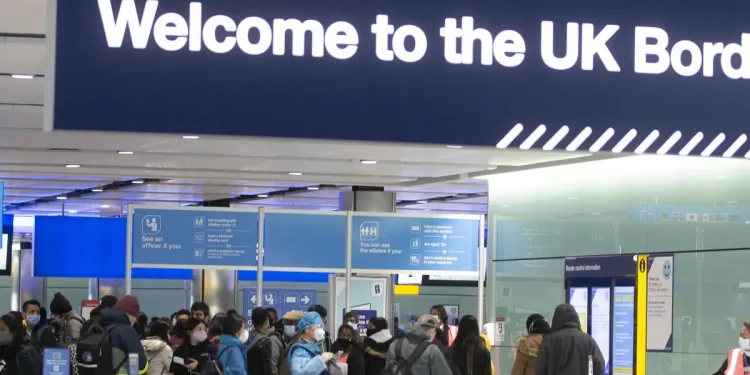UK immigration reforms 2025: In a significant policy shift, the UK Labour government has released a comprehensive white paper detailing substantial changes to the country’s immigration system. The reforms aim to reduce net migration and address public concerns, particularly following recent local elections where the anti-immigration Reform UK party made notable gains. (Financial Times)
Key Proposals in the White Paper
The 82-page document outlines several major changes:
- Skilled Worker Visa Adjustments: The minimum salary requirement for skilled workers will increase, and discounts from that threshold will be abolished. Only occupations with long-term shortages will be eligible for international recruitment, contingent upon a workforce strategy and commitment to domestic recruitment.
- Social Care Visas: The government plans to scrap social care visas entirely. During a transition period until 2028, visa extensions and changes of visa type will be permitted.
- Graduate Route Modifications: The duration that graduates can remain in the UK post-study will be reduced from five years to 18 months.
- Family Life Considerations: Legislation will be introduced to rebalance the right to a family life in the Human Rights Act, aiming to prevent it from obstructing deportations when removal is deemed in the public interest.
- Highly Skilled Workers: The government intends to increase visa opportunities for individuals with exceptional skills and experience that can contribute significantly to UK growth in strategic industries.
- Asylum Claims Scrutiny: There will be closer examination of cases where individuals claim asylum after arriving on a visa, especially if conditions in their home country have not materially changed.
- Criminal Offences and Deportation: Measures will ensure the Home Office is informed of any foreign national committing a criminal offence, not just those resulting in imprisonment. A review of deportation thresholds for foreign national offenders is also planned.
- English Language Requirements: New requirements will be imposed for both applicants and their dependents, including assessments of language improvement over time.(GOV.UK)
- Settled Status Eligibility: The qualifying period for gaining settled status will double from five to ten years.
Political Context and Reactions
Prime Minister Keir Starmer emphasized that soaring immigration has caused “incalculable” damage to the UK, both economically and politically. He criticized the previous government’s handling of migration and pledged that net migration would fall significantly by the end of his parliamentary term. (The Guardian)
Home Secretary Yvette Cooper announced that the reforms aim to reduce net migration by approximately 50,000 annually. She highlighted the need to prioritize domestic workforce training and reduce reliance on overseas labor. (The Sun)
Critics argue that the changes could exacerbate labor shortages, particularly in the healthcare sector, which heavily depends on migrant workers. Concerns have also been raised about the potential impact on the UK’s reputation as a destination for international students and professionals.
Implications for the Future
The Labour government’s immigration overhaul represents a decisive move to address public concerns and reshape the UK’s approach to migration. By focusing on reducing net migration and emphasizing domestic workforce development, the government aims to balance economic needs with public sentiment.(thetimes.co.uk)
However, the success of these reforms will depend on their implementation and the government’s ability to mitigate potential negative impacts on sectors reliant on migrant labor. As the UK navigates this new immigration landscape, ongoing dialogue with stakeholders and careful monitoring of outcomes will be essential.
For more information on the UK’s immigration policies and updates, visit the GOV.UK Immigration and Visas page.












